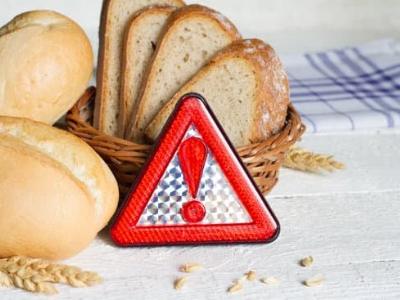I wanted to share my thought process and observations with my own recent experience with alpha-gal.
Alpha-gal, short for Alpha-galactose, refers to a complex sugar molecule found in the tissues of non-primate mammals, including cows, pigs, and other animals. It is also present in certain insects like ticks. Alpha-gal is known to trigger an immune response in some individuals, leading to an allergy called Alpha-gal syndrome. People with this condition may experience delayed allergic reactions after consuming red meat or products derived from mammals. Symptoms can range from mild to severe and may include hives, gastrointestinal discomfort, or even anaphylaxis. Alpha-gal has gained attention in recent years due to its association with tick bites and its impact on dietary choices and lifestyle adjustments for affected individuals.
Almost 5 years ago when I was doing my initial training with Dr. Soliman, about 1/3 of the class-tested weak to alpha-gal who didn’t think they had it—including myself. That explained why sometimes after I had bacon and eggs my stomach was off—I was beginning to think I had pepper sensitivity but we checked pepper too and only alpha-gal was weak. We did each other's needles as part of learning the process and 3 weeks later after I took out my needles, I had no issues with bacon and eggs. During that 3 weeks, I didn’t eat mammal meat or drink milk but otherwise, I didn’t kill myself avoiding mammal while the needles were in because I didn’t realize I even had an issue. Since then, I haven’t had any issues with mammal.

In an interesting twist of fate, my last tick experience resulted in a tick that tested negative for carrying any pathogens (thanks to the University of Kentucky tick tracking program, that testing was free for me) but I found myself experiencing what I thought was food poisoning about 6 weeks after the bite. I rarely get a stomach bug, but it didn’t feel quite like food poisoning. During that time, there was a stomach bug going around, so I stayed home to not share any bugs with my patients. I felt rough all day, but better by dinner which included mac & cheese with pork sausage…and I started feeling off again. I realized both dinners had pork. I took a Pepcid and within an hour I started feeling better—never progressed to vomiting. By the next morning, I felt great but was reasonably certain I had alpha-gal. It felt a lot like my patients' stories (I see a lot of alpha-gal patients!). It was going to be a couple of weeks to get into my doctor to get the blood test, but I see this every day.
The next morning at the office to get a clear test, I pull the basic alpha-gal filters: I check (alpha-gal, beef, pork, lamb, gluten, and MCAS) and to not bias my testing (because I know I might be weak to all of them), I add in some I’m pretty sure are safe: chicken, eggs, oats, rice, and avocado. My office manager has a good sense of feel and with a little coaching, I have good confidence in her ability to provide even pressure with each filter. She randomly puts them in the tray and tests me without looking at the labels with me looking away from the tray so I can’t see them—some test weak, some test strong…no surprise.
What was a surprise was the results—not the alpha-gal testing weak (I was pretty sure on that one), but the individual meats don’t test weak, nor does the gluten. It’s surprising as is the rice and the oats, but it also explains why I felt so bad the day before. I had a large bowl of oatmeal for breakfast and again for lunch to settle my stomach and felt bad all day. I conducted further testing using my specially formulated spays (currently in development, stay tuned!) with promising results. Now the question is how much mammal do I need to avoid to feel good? The meats and large amounts of dairy are out, but perhaps I can keep the cream in my coffee...
I do a 24-hour strict no-mammal or dairy diet and I feel great. Then I had my usual cream in my coffee—no symptoms initially, but around midday, I realize I have no motivation—I don’t want to be outside, I don’t feel like riding my horse, I can’t focus on anything I’m doing! Sure these aren’t allergy symptoms in the traditional sense, but they are not “my normal” by a long shot. I then eliminate regular cream for the next few weeks. I used coconut cream in my coffee and my brain wasn’t falling apart the afternoon! I take my specially formulated sprays and prep mammal-free meals for the week; including a dairy-free dark chocolate espresso bread with 9g of protein, no refined sugar, and no saturated fats. It’s not gluten-free; I adapted it from a gluten-free paleo recipe and swapped the coconut flour for organic white flour, so it easily could be.

In the end, it turns out allergies aren’t monolithic—it’s not always the same reaction to different things. I hear patients all the time tell me they tolerate dairy just fine and their allergist said they could have it because it didn’t show on the blood test—but just because you aren’t having hives, throwing up, or experiencing the “typical” allergies it doesn’t mean you are tolerating it. I’m not saying some people don’t tolerate dairy just fine with alpha-gal, I see patients who do. But it’s worth cutting things out for a few days to see what improves.
It’s not easy to do—I get it! My husband is not thrilled with this turn of events because he does a lot of our cooking and now he’s having to adapt for me. I thought a cake we made turned out pretty well, but he didn’t like it. Once I figure out why, I can hopefully tweak the recipe to work for both of us (I suspect he tastes too much coconut from the coconut oil or it wasn’t sweet enough for his taste). Apple sauce, banana, or shredded zucchini would have worked to tweak the taste too. I’ll try it again and see what happens. Cooking is an alchemy of transforming a pile of things into something else, and there’s more than one way to get there!
I’m pretty aware of what my body is feeling these days, I’ve learned the hard way to listen to it. My hope is you don’t have to suffer from not listening to your body—to be curious and notice not just the physical sensations you experience but mentally and emotionally how you feel as well and take that into account when making your food choices.
Yours in health,
Jenny-Marie
May is a month loaded with great awareness campaigns—most of which we see routinely in our clinic: Lyme, Mental Health, Ehlers-Danlos Syndrome, and Celiac Disease. Two of those are largely genetic—Celiac Disease and Ehlers-Danlos Syndrome—and while we can’t change your genes, acupuncture, herbs, and appropriate nutritional support can greatly improve the quality of life for patients with these conditions.
Our favorite supplements for Ehlers–Danlos Syndrome are available below; but please note these options are not all vegan or gluten-free so please contact our office for help choosing replacement products for this protocol if you need to avoid mammal or gluten:

Celiac Disease & Gluten Intolerance—What’s the Difference?
As far as Celiac Disease, there is a wide range of experiences: from those with an allergy to gluten creating the sensitivity, to those with true Celiac disease who simply won’t be able to effectively process gluten, to those who aren’t allergic—but react to the lectins in gluten and have an inflammatory response to these grains. While conventional thinking says allergies can only be managed and not treated, we are seeing people’s allergies actually go away (even as measured with IgE in the bloodwork) as a result of a highly specialized technique called “Soliman’s Auricular Allergy Treatment” pioneered by Dr. Nader Soliman, MD, LAc. While this technique is most widely known for helping people with alpha-gal allergies (an allergy to a carbohydrate found in mammal products triggered by tick bites) it actually is effective for most allergies.
We have helped people with nut allergies, dairy allergies, animal allergies, and even severe environmental allergies—not just pollen, dust, and molds, but more rare allergies such as sunlight and water! Gluten allergies also respond very well to this treatment; which brings me back to my earlier point about allergies vs. genetic limits vs. inflammatory response to other elements of gluten. For someone coming in with just a gluten allergy, this treatment will normally allow them to eat gluten without a reaction if they had a measurable IgE response to gluten in the past, and in many cases, this will disappear. Those with a genetic intolerance (what we refer to as “true Celiac”) still can’t eat gluten routinely after SAAT, but if they are accidentally exposed to gluten, they report that the reactions are greatly reduced. A similar effect is reported among those with lectin intolerance; they can’t always eat as much as they want, but small amounts and cross-contamination don’t cause the severe reactions they used to have.
For those with true Celiac—the reduced reactivity is a welcome relief; allowing them more options to enjoy meals with friends and family who may not realize what “gluten-free” really means even with the best intentions. For example, many people know that wheat has gluten, but they don’t realize most beers contain gluten. Foods like soy sauce and many spice blends contain small amounts of gluten as well, and for people with Celiac disease, even small amounts can create distressing reactions. Worse yet, labeling requirements are very bad in the US and many products contain unlabeled sources of gluten! In more severe cases, even topical exposure to gluten through lotions, soaps, or hair care products can create a reaction (though so far those reactions seem to be greatly reduced even in the most severe cases after SAAT).
Have someone in your life who needs to be gluten-free?
We created this handy guide of safe foods and hidden sources of gluten for reference!

The Hidden Cost of Lyme Disease
Lyme Disease may be one of the most pervasive and least frequently diagnosed conditions in the US. The current standard test, the ELISA test is estimated to be 70% accurate, but some independent testing has shown the current standard of combining an ELISA test with a Western Blot Test (which is reported to be 99% accurate) may be off more than 50% of the time, especially in cases of neurological Lyme. Worse yet, most doctors haven’t read the research about how a history of concussion or whiplash can make someone up to 80% more likely to develop chronic neurological Lyme because of damage to the blood-brain barrier. If there are other underlying chronic pathogens such as Epstein Barr Virus or Covid, those numbers very quickly get much worse. Diagnoses of Lyme Disease from Columbia University Medical Center
So in a month of Mental Health Awareness—why am I writing about misdiagnosed Lyme?
“People with psychiatric disorders related to Lyme disease may experience symptoms like fatigue, depression, anxiety, brain fog, rage, sleep disturbances, Bipolar disorder, and more. The longer that Lyme disease goes untreated, the more likely a patient is to develop these symptoms and disorders.”
The Effects of Lyme Disease, igenex.com
Chronic Lyme can also cause autonomic neuropathy. In these cases, the range of symptoms that can emerge is extremely broad and often leaves providers perplexed because the usual tests for those conditions will all be “normal”. Autonomic Neuropathy, Medscape
Arguably this subject can fill a book (one that I am working on) but suffice to say, many of the treatment strategies that are key to recovering from Lyme are beneficial for mental health, even in the absence of Lyme. Without going too far down into the weeds, it’s important to feed the body real food, minimize sugars (even hidden sugars like grains and breads), focus on nutrient-dense veggies for about 70% of your diet, and then find a balance of grains, fruits, and meats for the remaining 30% that keeps you feeling good. The same goes for mental health—better nutrition supports better mental health. In addition, nutrition to support the mitochondria in the cells can make a huge difference. Some of our favorites can be found here:
Feeling overwhelmed with how to eat healthy? Check out our free Facebook group, Raja Wellness Ways to Health for recipes, tips, inspiration, and to share those techniques that work for you!
Need one-on-one support? Clean Good Eats is a great resource—they have group classes on healthy cooking, or you can reach out to Dr. Sakinah Bunch for private coaching.
Yours in Health,
Jenny-Marie